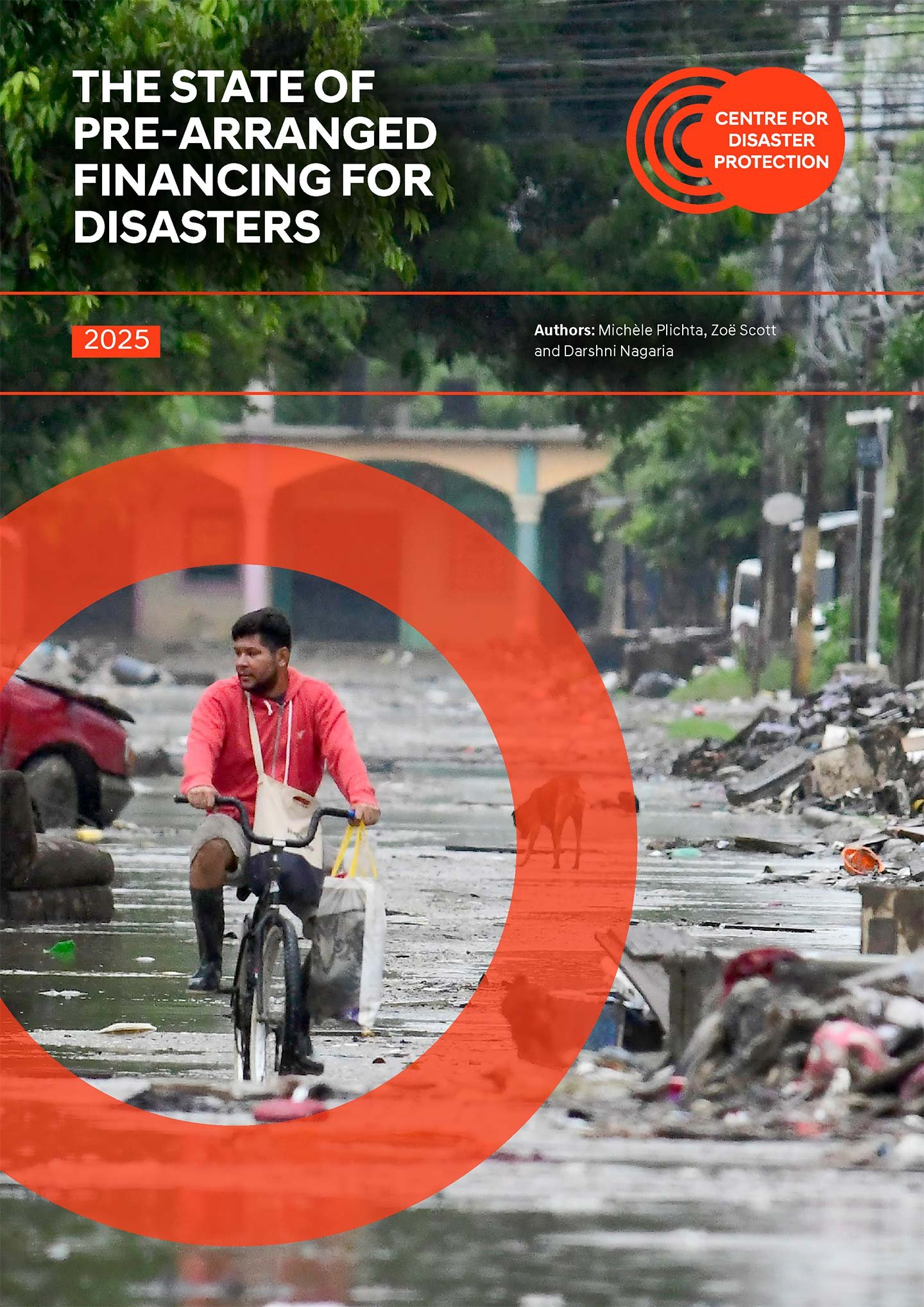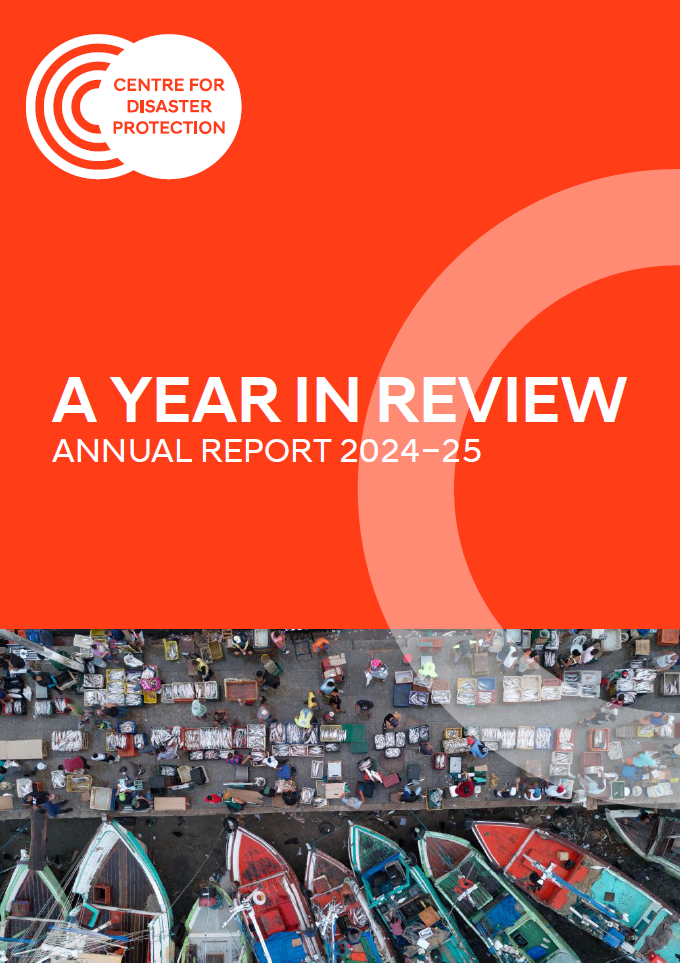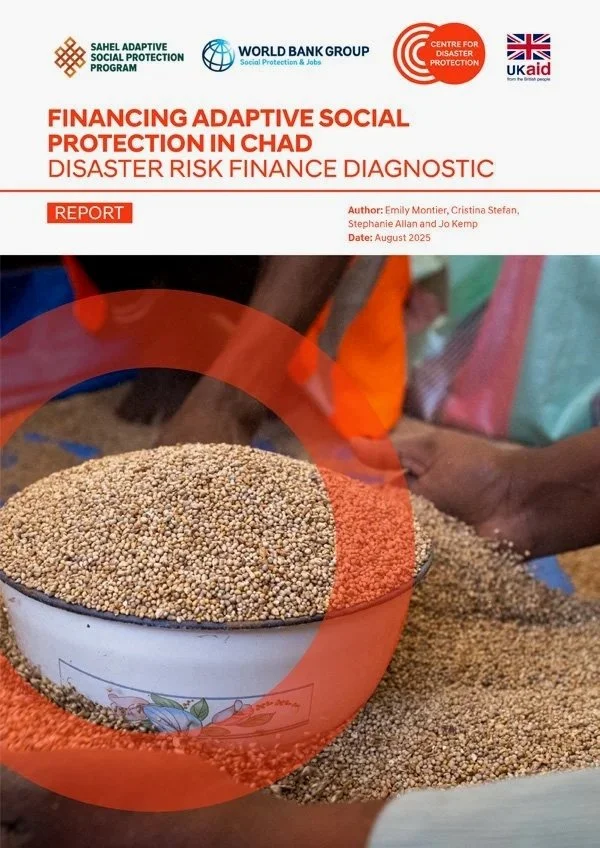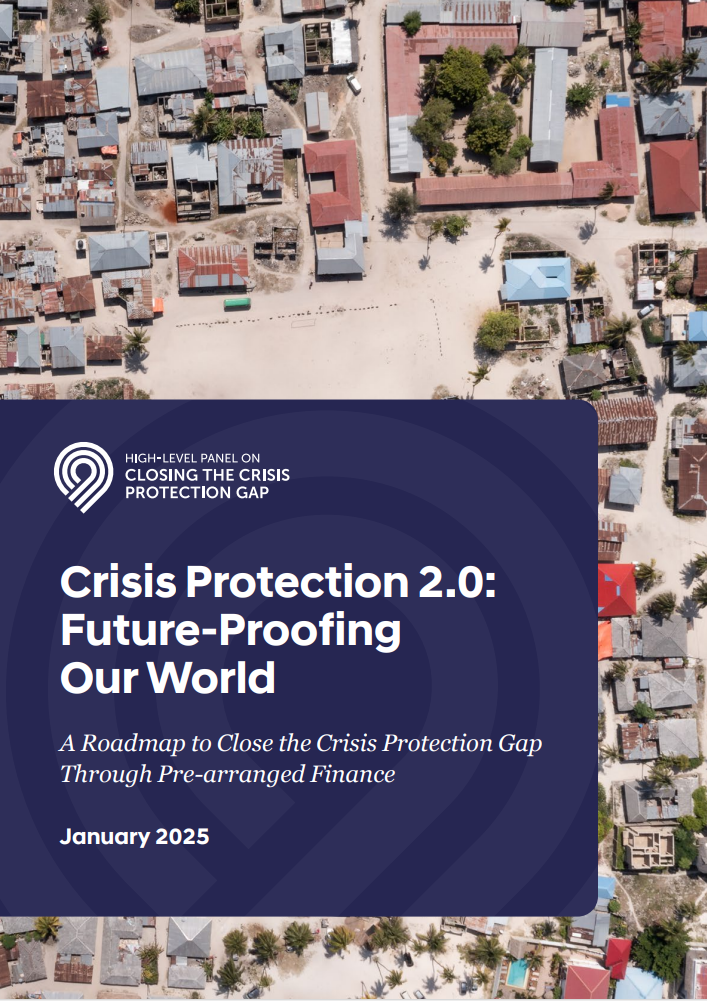
PUBLICATIONS CENTRE

THE STATE OF PRE-ARRANGED FINANCING FOR DISASTERS 2025
This is the third year that the Centre for Disaster Protection has published its flagship report, and this year it goes further than ever before.
Unprecedented levels of information sharing have enabled a significantly more detailed, instrument-specific understanding.
As a result, this year’s findings give us the most comprehensive and up-to-date picture yet of how PAF is working at global level.

UNDERSTANDING FLOOD RISKS IN CHAD
This technical brief, authored by CERDI and supported by the Centre for Disaster Protection, provides an in-depth analysis of flood risk in Chad. Drawing on historical data, satellite mapping, and household surveys, it examines flood hazards, population exposure, and the impacts on livelihoods. The brief has already informed the Government of Chad and the World Bank in planning flood responses and highlights priority areas for resilience, early warning, and adaptive social protection measures.

A YEAR IN REVIEW: ANNUAL REPORT 2024-25
A Year in Review 2024–25 shows how the Centre for Disaster Protection is turning ideas into impact, from helping country governments tailor solutions to their risk context to shaping global policy. The report captures progress, challenges and priorities from July 2024 to June 2025.

FINANCING ADAPTIVE SOCIAL PROTECTION IN CHAD: DISASTER RISK FINANCE DIAGNOSTIC
As part of the Centre for Disaster Protection’s support to the World Bank Sahel Adaptive Social Protection Programme (SASPP), the UK-funded Sahel Shock Response Programme seeks to develop a baseline of in-depth analysis on the social protection and disaster risk financing (DRF) landscape in the Sahel region. This is the third in a series of diagnostic reports, focusing specifically on Chad, aimed at informing the design and programming of the Centre’s support to the SASPP.

DEBT PAUSE CLAUSES CONFRONT THEIR FIRST DISASTER: FROM HURRICANE BERYL TO BROADER POLICY MOMENTUM
This policy brief examines the first real-world use of debt pause clauses - contractual mechanisms that allow sovereign borrowers to temporarily defer debt payments in the wake of a disaster. Following Hurricane Beryl in 2024, Grenada and St. Vincent and the Grenadines became the first countries to trigger these clauses, securing vital liquidity to support their crisis response. The brief explores how the clauses functioned in practice, their relationship with other financing instruments and offers critical guidance to improve how these instruments are designed, implemented and scaled as momentum builds toward broader adoption.

ASSESSING VALUE FOR MONEY IN PRE-ARRANGED FINANCING FOR DISASTERS: A PRACTICAL FRAMEWORK
This guidance note has been developed to help the increasing number of countries and organisations that are considering or using pre-arranged financing instruments but are unsure how to approach Value for Money (VfM) analysis. The note aims to provide the reader with an overview of VfM and how it relates specifically to pre-arranged financing, as well as presenting a flexible framework the Centre has developed to approach the process of conducting VfM analysis.
The content is mainly based on the Centre’s experience of supporting national governments and international agencies with VfM analyses . It also captures lessons from other published VfM studies, and perspectives gathered in interviews with people who use and develop similar studies.

CRISIS PROTECTION 2.0: FUTURE-PROOFING OUR WORLD
The High-Level Panel on Closing the Crisis Protection Gap formed in January 2024, comprising 20 expert members from across sectors and geographies, united by the conviction that national and international crisis, climate and development financing architectures are at a critical juncture. This report delivers the High-Level Panel on Closing the Crisis Protection Gap’s call to action - that now is the time to comprehensively rethink how the world financially prepares itself for and responds to crises. The Crisis Protection 2.0 report outlines ten strategic recommendations and an ambitious roadmap for the next decade.
